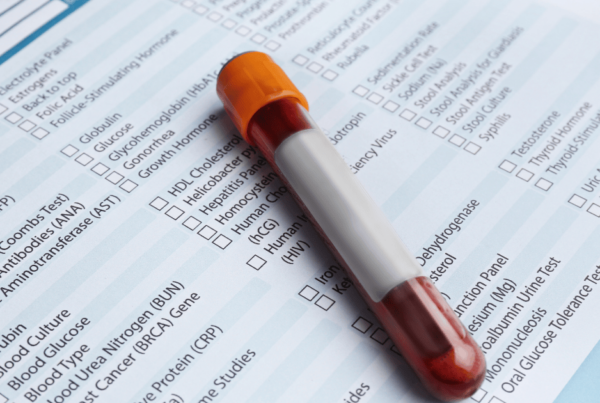Embarking on a journey as a Phlebotomy Student is an exciting step toward a rewarding healthcare career. Did you know that the demand for phlebotomists is projected to grow by 10% over the next decade? Phlebotomists play a crucial role in patient care by collecting blood samples for diagnostic testing, transfusions, and medical research. If you’re currently enrolled in a phlebotomy training program or considering one, you may wonder how to maximize your success and prepare for the job market.
| Key Takeaways |
| Organization and preparation are key to success in phlebotomy training. |
| Mastering the basics builds confidence for advanced procedures. |
| Hands-on experience is essential for developing proficiency. |
| Strong communication skills improve patient interactions. |
| Staying informed about industry trends helps advance your career. |
| Certification boosts employability and credibility. |
| Networking opens up career opportunities and mentorship. |
This guide provides Phlebotomy Students with practical advice to excel in their coursework, master essential skills, and navigate their career paths with confidence. Whether you’re learning the fundamentals or preparing for certification, these insights will help you build a strong foundation for a successful career in phlebotomy.
Understanding the Role of a Phlebotomy Student
Before diving into tips for success, it’s essential to understand what a Phlebotomy Student is expected to learn. Phlebotomy training covers:
- Venipuncture techniques and blood collection procedures
- Proper handling and labeling of specimens
- Patient communication and professionalism
- Safety protocols and infection control
- Anatomy and physiology related to blood draws
By mastering these skills, you’ll be well-prepared to enter the workforce as a competent and confident phlebotomist.
Stay Organized and Prepared for Class
Success as a Phlebotomy Student starts with preparation and organization. Since phlebotomy involves both theoretical learning and hands-on practice, staying organized will help you retain important information and manage coursework efficiently.
Tips for Staying Organized:
- Keep all class notes, textbooks, and reference materials in a dedicated folder or binder.
- Use a planner or digital calendar to track assignment due dates, lab sessions, and exams.
- Review your notes regularly to reinforce key concepts.
- Set specific study times each week to avoid last-minute cramming.
- Create flashcards for medical terminology and procedures to improve recall.
Master the Fundamentals Before Advancing
Before moving on to advanced procedures, Phlebotomy Students must have a solid grasp of the basics. Understanding the fundamentals will make it easier to perform more complex blood collection techniques later on.
Key Areas to Focus On:
- Proper venipuncture technique
- Identifying veins and troubleshooting difficult draws
- Safety and hygiene protocols
- Patient interaction and comfort measures
- Understanding blood flow and the circulatory system
- Recognizing signs of complications, such as hematoma or nerve involvement
The more you refine your foundational skills, the more confident you’ll be when performing real-world procedures.
Get Hands-On Experience
Phlebotomy is a skill-based profession, meaning hands-on experience is crucial. The more you practice, the more skilled and comfortable you will become.
How to Gain Practical Experience:
- Participate in all lab training and clinical rotations.
- Volunteer for additional practice opportunities.
- Work with classmates to refine techniques in a controlled environment.
- Seek internships or externships at hospitals, clinics, or blood donation centers.
- Ask instructors for additional practice sessions if needed.
Real-world practice will prepare you for working with actual patients and improve your ability to handle various situations confidently.
Develop Strong Communication Skills
As a Phlebotomy Student, you’ll learn that patient interaction is just as important as technical skills. Many patients experience anxiety when getting blood drawn, so being able to communicate effectively is a key part of the job.
Tips for Effective Communication:
- Explain procedures clearly and calmly to reassure patients.
- Practice active listening to understand patient concerns.
- Maintain professionalism and empathy in every interaction.
- Develop a calming presence to ease patient nervousness.
- Learn to recognize non-verbal cues indicating discomfort or fear.
Good communication skills help create a positive patient experience and build trust in your abilities as a phlebotomist.
Stay Updated on Industry Trends
Phlebotomy is a constantly evolving field, with new technologies, best practices, and industry standards emerging regularly. Staying informed will help you remain competitive in the job market and provide the best care possible.
Ways to Stay Informed:
- Subscribe to phlebotomy journals and newsletters.
- Join online forums and professional networks.
- Attend workshops, conferences, and continuing education courses.
- Follow healthcare organizations for updates on regulations and best practices.
Keeping up with industry advancements ensures you stay ahead in your career and are aware of the latest developments in phlebotomy.
Prepare for Your Certification Exam
Certification enhances your credibility and employability as a Phlebotomy Student transitioning into a professional role. Many employers prefer certified phlebotomists, as certification demonstrates competency and adherence to industry standards.
How to Prepare for Certification:
- Begin studying early and use reliable study materials.
- Take practice exams to assess your knowledge.
- Join study groups to discuss key topics and reinforce learning.
- Review exam content outlines from certifying bodies like the National Healthcareer Association (NHA) or American Society for Clinical Pathology (ASCP).
- Utilize mobile apps for on-the-go studying.
- Schedule your exam strategically to allow for thorough preparation.
A well-prepared approach increases your chances of passing the exam on the first attempt and securing job opportunities faster.
Network with Other Phlebotomy Students and Professionals
Building a strong network can provide valuable career opportunities and support throughout your training and beyond.
Networking Strategies:
- Connect with classmates, instructors, and healthcare professionals.
- Join phlebotomy-related social media groups and forums.
- Attend local or virtual career fairs to meet potential employers.
- Consider joining professional organizations like the American Phlebotomy Association (APA).
- Seek mentorship from experienced phlebotomists to gain insider knowledge.
Networking can lead to job referrals, mentorship opportunities, and insights into the field from experienced professionals.
Maintain Professionalism and a Positive Attitude
Professionalism is essential in any healthcare role. Your attitude and behavior during training will set the tone for your career.
Ways to Demonstrate Professionalism:
- Arrive on time for classes and clinical training.
- Dress appropriately and follow hygiene standards.
- Show respect for instructors, peers, and patients.
- Display a willingness to learn and improve your skills.
- Maintain patient confidentiality and follow ethical guidelines.
Employers look for phlebotomists who not only have the technical skills but also demonstrate reliability, responsibility, and a strong work ethic.
Seek Continuing Education Opportunities
Learning doesn’t stop once you complete your training. Pursuing further education helps you stay competitive in the healthcare field and opens doors to career advancements.
Continuing Education Options:
- Enroll in advanced phlebotomy courses.
- Obtain additional certifications, such as EKG technician or medical assistant training.
- Take specialized workshops on topics like pediatric phlebotomy or arterial blood draws.
- Consider cross-training in other medical fields to expand career options.
Continuing education enhances your qualifications and can lead to higher-paying job opportunities.
FAQs
What’s the duration of training to become a phlebotomist?
Most phlebotomy programs take 4-8 months to complete, depending on the school and curriculum.
Is phlebotomy a difficult career to enter?
Phlebotomy requires dedication and practice, but it’s an accessible healthcare career with a relatively short training period.
Do I need certification to work as a phlebotomist?
While some states don’t require certification, most employers prefer certified phlebotomists for better job prospects.
How can I improve my venipuncture skills?
Regular practice, hands-on training, and seeking feedback from instructors and experienced professionals can help improve your technique.
What are the job prospects for phlebotomists?
With a growing demand in the healthcare industry, phlebotomy offers strong job prospects in hospitals, clinics, and diagnostic labs.
Conclusion
Becoming a successful Phlebotomy Student requires dedication, practice, and a commitment to lifelong learning. By staying organized, mastering essential skills, networking with professionals, and preparing for certification, you’ll be on the path to a rewarding career in phlebotomy.
Ready to Start Your Phlebotomy Career?
At Phlebotomy Now School, we offer top-tier training programs designed to equip you with the knowledge and skills needed to excel in the field. Take the first step towards certification and a thriving career today!
Enroll Now and join the next generation of skilled phlebotomists!


